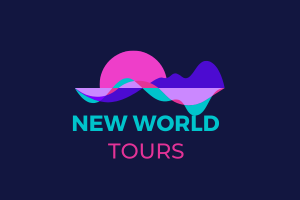Navigating the Digital Journey: How Mobile Apps are Transforming Travel Planning
The post Navigating the Digital Journey: How Mobile Apps are Transforming Travel Planning appeared first on TD (Travel Daily Media) Travel Daily Media.
Travel planning is now easier with mobile apps. Technology has made it simple to plan trips with just a few taps on a screen. From selecting their desired destination to booking flight tickets, arranging accommodations, and exploring local attractions, every aspect can be handled conveniently using these mobile applications.
Once reliant on printed maps and travel agencies, today’s travelers turn to their smartphones for instant access to a wealth of information and services. Etraviax Technologies, leading Travel technology company, offering the latest mobile app development to the clients
is changing how we travel by revolutionizing the way we explore the world. High-speed internet and smartphones have made travel booking apps grow. This has made travel planning easier and more organized for people worldwide.
On the other hand, the role of travel technology is increasingly paramount behind the scenes. Global Distribution Systems (GDS) are crucial in the travel industry. They help integrate various booking platforms. They also provide real-time access to travel information.
Travel companies use GDS system to book flights, reserve hotels, rent cars, and more, all connected through one network. GDS plays a key role in digital travel planning by giving instant access to a wide range of travel services worldwide.
Evolution of Travel Planning Methods
In the past, planning a trip required many visits to travel agencies or numerous calls to hotels for reservations. Travel planning has changed a lot thanks to Global Distribution Systems (GDS). Now, travel agents can easily see schedules, prices, and availability all in one system. It replaced the tedious process with an organized, efficient framework, revolutionizing the travel industry in an unprecedented way.
The cataclysmic shift from traditional methods to the digital era has instigated a major digital transformation in the sector. The emergence of numerous digital platforms offered by travel technology companies has simplified travel planning. These mobile apps give power to customers, letting them easily book flights, hotels, and plan trips with just a few clicks.
The evolution signifies a paradigm shift aimed at making travel more convenient, personalized, and accessible to all. The journey starts with planning and includes technology at every step, not just at the destination.
Mobile App Revolution: Transforming Travel Planning
The rise of mobile applications has brought a significant transformation to the travel industry, notably in travel planning. These apps provide helpful travel solutions. They combine services such as travel updates, hotel bookings, flight reservations, local transportation options, and user feedback.
All of these services are conveniently available in one place. Having travel apps on your phone makes it easy to plan and manage your trips. They are essential tools for organizing travel logistics and are convenient to use on the go.
Travel booking has become seamless with the integration of Global Distribution Systems (GDS) in these mobile apps. GDS platforms provide real-time inventory management and booking services for airlines, hotels, car rentals, and other travel services.
When you enter a destination, these platforms show you all the flights, places to stay, and transportation options with details. Accessing and comparing services globally has made booking travel easier and improved the user experience in digital travel planning.
Global Distribution Systems (GDS) in Modern Travel
GDSs have improved the way travel bookings are done and are essential for the global tourism industry. These platforms assist travel agents in booking hotels, flights, car rentals, and other services.
They provide real-time access to inventory and pricing information. This makes it easy for travel agents to make bookings quickly and efficiently. These platforms are the main booking tools in the industry, making reservation processes easier for agents and saving time and resources.
The role of GDS, however, extends beyond providing a hub for travel transactions. In today’s digital age, travel systems have changed to give users personalized experiences. Agents can now personalize services to meet individual client needs better than ever before.
Travel can be customized to meet the client’s preferences. This includes everything from the specifics of the trip to the accommodations they choose. This customization results in a one-of-a-kind and memorable experience for the client.
GDS in the travel industry is more than just a system. It helps create personalized travel experiences by providing essential services for travelers.
Personalization and Customization in Travel Tech
The travel industry now offers personalized services to customers by using data analytics, AI, and machine learning. This allows them to push boundaries and provide customized experiences. These technologies revolutionized the way people plan and strategize travel.
AI uses complicated formulas to study a lot of user data. This data includes past searches, bookings, preferences, online reviews, and social media interactions. As a result, it offers highly personalized travel recommendations that align closely with individual preferences, needs, goals, and budgets.
AI algorithms use a lot of data to give personalized recommendations to travelers. Travel app users look at things like what users like, what they’ve booked before, and current travel trends. Travel apps use machine learning to keep improving their suggestions, so users always get the best information.
For travel agency owners, AI-powered apps streamline operations, automate repetitive tasks, and enhance customer service, ultimately driving efficiency and profitability. Machine learning, a part of AI, helps improve personalized recommendations. It learns from users’ searches, interactions, and behaviors to improve travel suggestions.
In essence, these sophisticated technologies work collectively to customize travel experiences, allowing companies to connect more deeply with their customers on a personal level. They offer customized solutions in real-time, enabling travelers to design trips that meet their unique expectations, thereby revolutionizing the overall travel experience.
Enhancing travel experiences with technology
Technology has improved the travel industry by offering many ways to enhance the traveler’s experience. Real-time updates are key among these, a development that has granted travelers unprecedented autonomy and flexibility. Whether it’s analyzing traffic patterns for optimal driving times or tracking flights for delay predictions, these updates have removed much of the uncertainty inherent in travel. This improvement, in turn, promotes a sense of security and allows the individual to focus on the enjoyment of their experiences.
Technology has made travel easier by connecting different platforms and services. Travelers can now get directions and make digital payments for various travel services. Digital payments have expedited the transaction process, enhanced security, and reduced the need to carry physical money around, improving overall user convenience. As travel technology advances, it will continue to improve and enhance travel experiences.
Future Trends: Innovations in Travel Technology
Travel technology innovations are already spearheading a new direction in the travel industry, changing the way travelers plan, experience, and remember their trips. One such promising technology is the rise of augmented reality (AR) and virtual reality (VR). AR overlays the real world with digital information, while VR submerges users in a complete digital environment.
Both technologies have the potential to transform travel—AR can provide real-time information and context to travelers exploring unknown locales, while VR can offer immersive “try before you buy” experiences, helping travelers to make informed decisions.
Another significant development comes from the incorporation of voice assistants in travel planning and experiences. With the increasing ubiquity of voice assistant devices like Amazon’s Alexa or Google’s Assistant, travel brands are now making their services accessible through these technologies.
Travelers can use voice commands for searching flights, booking hotels, discovering local attractions, translating languages, and even for packing tips. Undoubtedly, digital tools are enhancing every aspect of travel, right from planning to the actual trip and even post-travel experiences.
Introducing blockchain into travel platforms
Blockchain technology offers a revolutionary solution for securing transactions and enhancing trust between travelers and service providers. By tokenizing bookings and leveraging decentralized ledgers, blockchain ensures the integrity and transparency of every transaction, minimizing the risk of fraud or unauthorized alterations.
For travel agency owners, adopting blockchain-based systems streamlines the booking process, reducing reliance on intermediaries and administrative overhead costs. Additionally, blockchain enables instant and secure payments, eliminating the need for lengthy processing times and reducing transaction fees. Furthermore, the immutable nature of blockchain ensures that all booking records are tamper-proof and verifiable, enhancing accountability and customer satisfaction.
Using blockchain technology in travel improves security and efficiency. Blockchain technology in travel technology enhances security and efficiency. It allows travel agency owners to offer a seamless booking experience for their clients. This leads to increased loyalty and growth in the industry.
The post Navigating the Digital Journey: How Mobile Apps are Transforming Travel Planning appeared first on Travel Daily Media.











